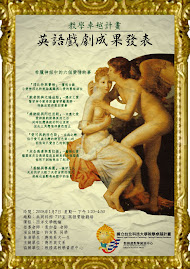Beyond the divide between human and non-human
 Bella Swan has long desired to become a vampire to stay forever young and beautiful so that she would be compatible to Edward Cullen. Her goal is the fulfillment of love in both physical and psychological unity, as symbolized in the love story between Cupid and Psyche.
Bella Swan has long desired to become a vampire to stay forever young and beautiful so that she would be compatible to Edward Cullen. Her goal is the fulfillment of love in both physical and psychological unity, as symbolized in the love story between Cupid and Psyche.However, Edward has long determined to stop this "crossing-over" from happening and has tried his best efforts to prevent and to postpone Bella's transformation. Edward would consider this possibility only when Bella's life is in japerdy. In other words, he would inject his venom into Bella's body as the last resort to keep her alive. He wants Bella to lead a normal human life, the one he was forced to surrender in order to stay alive.
Does Edward want Bella to grasp what he has considered to be invaluable, i.e., a human life? By so doing, does Edward impose upon Bella what he likes instead of considering what she wants? Does Edward really understand and turely feel the urgency of Bella's needs to be transformed into a vampire and to become one of the Cullens?
Let's examine Edward's motivation from another perspective. By denying Bella's request to be transformed into a non-human creature, does Edward try to urge Bella to stay what she really is and to cherish what she has in hand, her status quo as a human?
In her aspiration for becoming a vampire in order to be compatible with her love, does Bella actually let go of something that is truely essential for her existence, e.g., life with her parents and the integrity of her personality?
Can Bella re-define the word "compatibity" in love relationship?
Maybe, she does not have to go beyond the human/non-human devide in order to fulfill her love. Maybe, Edward would love her the way she really is, i.e., to be human. To be human involves changes and vulnerability: growing up, aging, giving birth, falling ill, and eventually death. Maybe Edward would love Bella even more deelpy simply because the very nature of her human life: Nothing would last forever, so hold every minute dearly.
However, it is only too natural for a human female to hold "youth" and "beauty" to be the deciding factors for a love relationship to stand. Are they really the criteria for a successful love relationship? Is this the way how love and marriage are constructed in human society? Or, is this simply human nature? In this sense, it is perfectly sensible for Bella to want to become an immortal and beautiful vampire.
Discussion topics:
Do you think it is resonable for Edward to stop Bella from becoming a vampire?
Do you think it is the right thing for Bella to do to become a vampire in order to fulfill her love?
What would you do if you were Edward and/or Bella?
Do you think it is resonable for Edward to stop Bella from becoming a vampire?
Do you think it is the right thing for Bella to do to become a vampire in order to fulfill her love?
What would you do if you were Edward and/or Bella?















